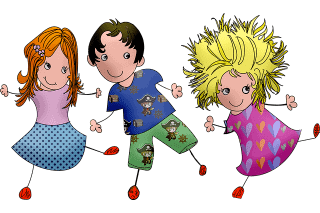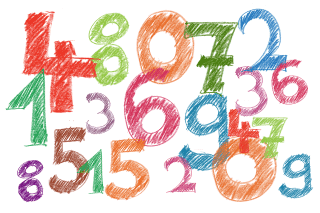
Hall of fame
English rhymes for kids are an essential part of primary level education. They play a crucial role in enhancing the English language and cognitive development of children. Rhymes are fun and engaging, making it easier for children to learn and remember English words and phrases. They also help in building vocabulary, pronunciation, and communication skills.
The significance of rhymes for kids cannot be overstated. Children are exposed to rhymes from an early age, and this helps them in developing a sense of rhythm and melody. Rhymes also help in building phonemic awareness, which is the ability to hear and identify the individual sounds in words. This skill is essential for learning to read and write.
Rhymes are a great tool for teaching children about different concepts such as colors, numbers, and shapes. They make learning these concepts fun and memorable. Rhymes also help in developing memory skills. Children tend to remember rhymes better than other forms of learning because of their repetitive nature and catchy tunes
Another crucial role that rhymes play in children’s education is in developing social and emotional skills. Rhymes are often sung in groups, and this helps in building social bonds and promoting teamwork. They also help in developing empathy and understanding of different emotions. For example, rhymes that focus on emotions like happiness, sadness, and anger can help children in recognizing and expressing their own emotions.
Frequently asked questions (FAQ's) based on 'English Rhymes for kids'
Answer : English rhymes are important for children’s language development because they help in developing phonemic awareness, which is crucial for early literacy and reading comprehension. Rhymes also improve vocabulary, grammar, and pronunciation.
Answer : Yes, English rhymes for kids can help non-native English speakers improve their language skills by improving their pronunciation, vocabulary, and grammar. They can also help in developing a sense of rhythm and intonation.
Answer : English rhymes can be incorporated into a primary level institution’s curriculum by including them in language classes, using them as a teaching tool for grammar and pronunciation, and organizing rhyme competitions or events.
Answer : Parents can encourage their children to learn English rhymes by singing them together, playing rhyming games, reading nursery rhyme books, and watching rhyming videos.
Answer : Some popular English rhymes for kids include “Twinkle, Twinkle, Little Star,” “Mary Had a Little Lamb,” “Humpty Dumpty,” “Baa Baa Black Sheep,” “Jack and Jill,” “Row, Row, Row Your Boat,” “Old MacDonald Had a Farm,” “The Itsy Bitsy Spider,” “Five Little Monkeys Jumping on the Bed,” and “Hickory Dickory Dock.”
Answer : Learning English rhymes can benefit children’s cognitive development by improving memory, enhancing attention span, and developing creativity and imagination.
Answer : English rhymes can be used to teach children about different cultures by introducing rhymes from different parts of the world, discussing the history and background of the rhymes, and organizing cultural events where children can perform rhymes from different cultures.
Answer : English rhymes can help children with special needs by providing them with a fun and interactive way to improve language skills, memory, and attention span. Rhymes can also help in developing social and communication skills.
Answer : Yes, English rhymes can be used to teach moral values to children by incorporating themes such as kindness, honesty, and respect into the rhymes.
Answer : English rhymes can be made more engaging and interactive for children by incorporating actions, gestures, and props into the rhymes, encouraging children to participate in singing and performing the rhymes, and organizing rhyme-related activities such as coloring or craft projects.
Related links
Other related keywords and search's
- all nursery rhymes
- baby rhymes in english
- baby songs in english
- children rhymes in english
- children's songs in english
- english children's songs
- english nursery rhyme songs
- english nursery rhymes for kids lyrics
- english nursery rhymes with lyrics
- english recitation for class 1 with lyrics
- english rhymes english rhymes english rhymes
- english rhymes for sr kg
- english rhymes free download
- english rhymes lyrics
- english rhymes pdf
- english songs for kids
- english songs for school students with lyrics
- famous rhymes in english
- nursery class english
- nursery rhymes english
- nursery rhymes in english
Categories
Other popular rhymes
Other related keywords and search's
- rhymes english song
- rhymes for ukg class in english
- rhymes in english for class lkg
- school rhymes english
- simple english songs lyrics
- teddy bear song lyrics - english
- best nursery rhymes
- best rhymes for kids
- child rhymes lyrics
- children's nursery rhymes
- classic nursery rhymes
- good rhymes
- kid songs lyrics
- nursery rhyme lyrics
- nursery rhymes and kids songs
- nursery rhymes for kids
- nursery rhymes pdf
- nursery rhymes preschool
- nursery rhymes with lyrics
- rhymes for kg class
- short nursery rhymes for children
- nursery english rhymes for kids
- classical english rhymes for kids
- short english rhymes for kids
- english rhymes for kids question answers
- best english rhymes for kids
- simple english rhymes for kids
- all english rhymes for kids
- baby english rhymes for kids





















































